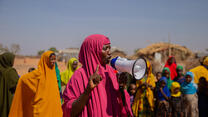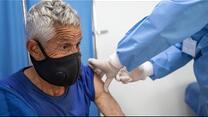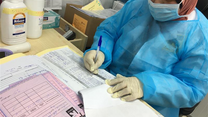A recent analysis found that 87% of COVID-19 vaccine doses have been given in wealthier countries, despite new surges in cases and deaths in conflict and crisis-affected countries. As variants drive up infections and intensify pressure on already-strained health systems, countries such as the US and the UK have pre-purchased enough doses to vaccinate their populations more than two times over. Inequity in vaccine supply and access remains a tremendous concern. Without an equal distribution of doses, cases will continue to surge around the world, increasing the likelihood of new variants developing that will only continue the trajectory of this pandemic.
The recent pledge from the US to share excess doses with low-income countries through the COVAX Facility, alongside calls from world leaders for the G7 to make COVID-19 vaccines readily available for all, are both critical steps to increasing equitable access to vaccine supply. Yet, vaccines alone are not enough. The international community is not currently devoting the necessary resources to support vaccine delivery in low-income countries. It normally takes years of planning to introduce new vaccines. This includes technical support for governments to plan distribution as well as generate demand for the vaccines. Without these key components, we will continue to see doses expire, be returned/reallocated, go back into storage, and be mistrusted.
Report



